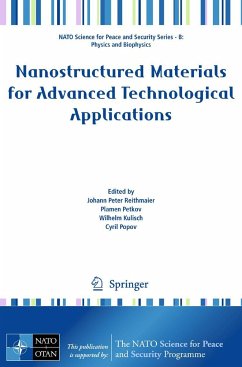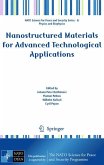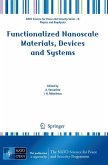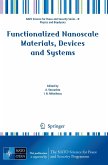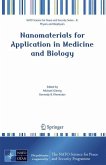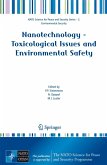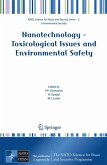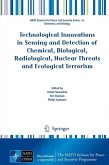This book is based on the lectures and contributions of the NATO Advanced Study Institute on "Nanostructured Materials for Advanced Technological Applications" held in Sozopol, Bulgaria, 1-13 June, 2008. It gives a broad overview on this topic, as it combines basic theoretical articles, papers dealing with experimental techniques, and contributions on advanced and up-to-date applications in fields such as electrochemistry, optoelectronics, data storage, sensor technique, and biotechnology. In addition, it presents an interdisciplinary approach as the authors came from different fields such as physics, chemistry, engineering, materials science and biology. Some emphasize is given to the fields of nanostructured/nanoscaled thin films and nanocomposites, again stretching from basic theoretical over experimental (including both, fabrication and characterization) to application oriented topics. A major advantage of the book, which represents the knowledge of experts from 19 countries, is the combination of longer papers introducing the basic knowledge on a certain topic, and brief contributions highlighting special methods and applications.
Nanoscience and Nanotechnology are experiencing a rapid development in many aspects, like real-space atomic-scale imaging, atomic and molecular manipulation, nano-fabrication, etc. , which will have a profound impact not only in every field of research, but also on everyday life in the twenty-first century. The common efforts of researchers from different countries and fields of science can bring complementary expertise to solve the rising problems in order to take advantage of the nanoscale approaches in Materials Science. Nanostructured materials, i. e. materials made with atomic accuracy, show unique properties as a consequence of nanoscale size confinement, predominance of interfacial phenomena and quantum effects. Therefore, by reducing the dimensions of a structure to nanosize, many inconceivable properties will appear and may lead to different novel applications from na- electronics and nanophotonics to nanobiological systems and nanomedicine. All this requires the contribution of multidisciplinary teams of physicists, chemists, materials scientists, engineers and biologists to work together on the synthesis and processing of nanomaterials and nanostructures, und- standing the properties related to the nanoscale, the design of nano-devices as well as of new tools for the characterization of nano-structured materials. The first objective of the NATO ASI on Nanostructured Materials for Advanced Technological Applications was to assess the up-to-date achie- ments and future perspectives of application of novel nanostructured materials, focusing on the relationships material structure ? functional properties ? possible applications.
Nanoscience and Nanotechnology are experiencing a rapid development in many aspects, like real-space atomic-scale imaging, atomic and molecular manipulation, nano-fabrication, etc. , which will have a profound impact not only in every field of research, but also on everyday life in the twenty-first century. The common efforts of researchers from different countries and fields of science can bring complementary expertise to solve the rising problems in order to take advantage of the nanoscale approaches in Materials Science. Nanostructured materials, i. e. materials made with atomic accuracy, show unique properties as a consequence of nanoscale size confinement, predominance of interfacial phenomena and quantum effects. Therefore, by reducing the dimensions of a structure to nanosize, many inconceivable properties will appear and may lead to different novel applications from na- electronics and nanophotonics to nanobiological systems and nanomedicine. All this requires the contribution of multidisciplinary teams of physicists, chemists, materials scientists, engineers and biologists to work together on the synthesis and processing of nanomaterials and nanostructures, und- standing the properties related to the nanoscale, the design of nano-devices as well as of new tools for the characterization of nano-structured materials. The first objective of the NATO ASI on Nanostructured Materials for Advanced Technological Applications was to assess the up-to-date achie- ments and future perspectives of application of novel nanostructured materials, focusing on the relationships material structure ? functional properties ? possible applications.

